In such a traditional festival as the Dragon Boat Festival, we continue to pay attention to intangible cultural heritage. How can we better inherit these precious cultural heritage and let them keep pace with the times and glow with new brilliance?
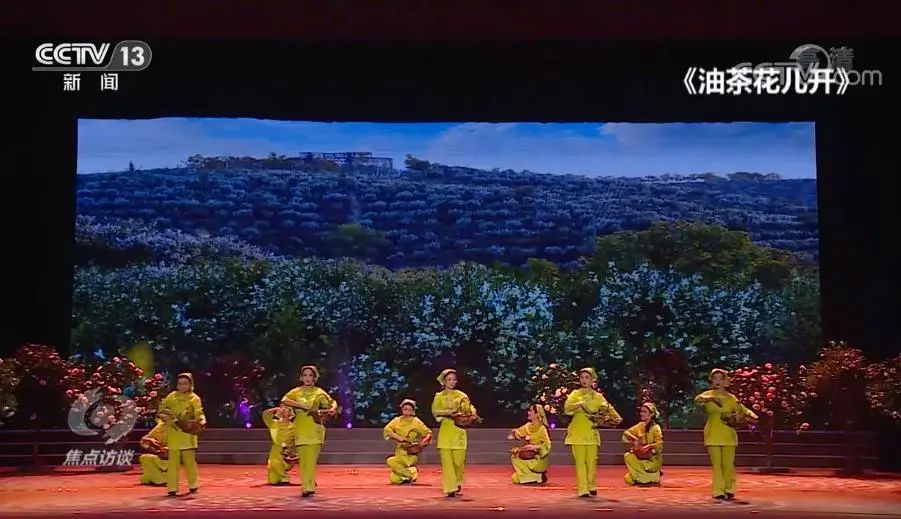
These days, the actors of the Huagu Opera Inheritance Center in Guangshan County, Henan Province are rehearsing a modern Huagu opera "Camellia oleifera flowers bloom". This Huagu Opera is different from the traditional repertoire. The dance beauty and music have all added modern elements. Although the singing is traditional, it is refreshing as a whole.
Guangshan Huagu Opera is a traditional opera in Guangshan County, Henan Province, with a history of more than 200 years. It was included in the national intangible cultural heritage representative project list in 2014. The General Secretary encouraged them to carry on the Huagu Opera.
Zhang Xiufang began to learn opera at the age of 16, and is the sixth generation successor of Guangshan Huagu Opera. She has experienced the most difficult period in the development of Guangshan Huagu Opera.
Zhang Xiufang's master's name is Weng Xingfan. In 1953, he brought Guangshan Huagu Opera to Beijing for a performance report. At that time, Huagu Opera was very popular locally, but few people wanted to learn it.
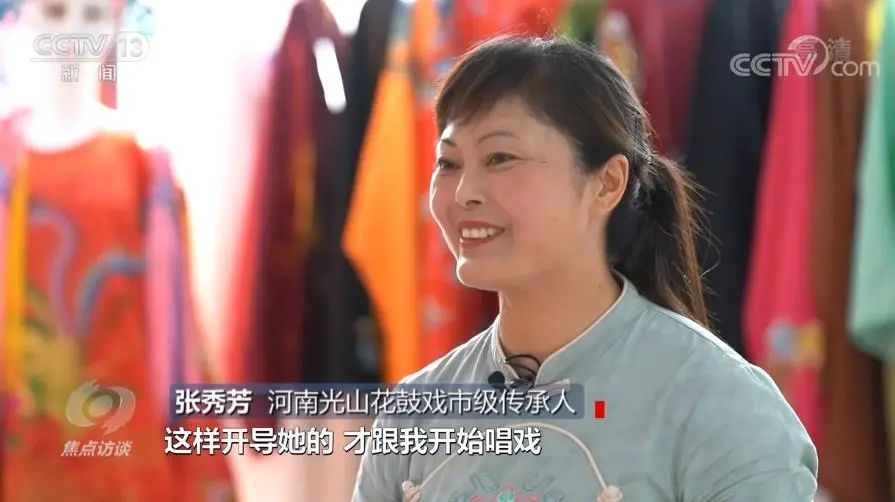
Despite being snubbed, Zhang Xiufang insisted on singing with her love. After the death of Shifu in the 1990s, Zhang Xiufang began to wander in the Jianghu alone with the drama box left by Shifu. She never forgot Shifu's words before she died. She wanted to sing the opera and pass it on. However, it was not easy to accept the apprentice at first. Her husband, Fang Yingliang, became her eldest disciple. Later, her daughter, Fang Yalan, was also persuaded to join in.
In order to make more people like Huagu Opera, Zhang Xiufang thought a lot. With the renovation of clothing, the addition of accompanying instruments and the new compilation of lyrics, Zhang Xiufang's Huagu Opera has incorporated many modern elements. In the 1950s, the master's masterpiece "Couple Watching the Lantern" was also boldly adapted by Zhang Xiufang. The 30-minute play was shortened to eight minutes. The rhythm was bright and compact, and the burden was one after another, which was more in line with the viewing habits of modern audiences, especially young people.
At the same time, Guangshan County has also made great efforts to promote Huagu Opera. In 2018, Guangshan County established the Huagu Opera Inheritance Center. The positions of performers were purchased by the government and employed uniformly. Each year, many plays were rehearsed. This has also attracted many young people.
In recent years, Huagu Opera has become more famous. More and more young people are joining in. Zhang Xiufang received several young disciples.
Today, through vigorous development, Guangshan County has nearly 1000 Huagu Opera performers, including one national inheritor, one provincial inheritor, eleven municipal inheritors, and more than 500 county inheritors. Guangshan Huagu Opera, an ancient opera that has lasted for more than 200 years, is full of vitality in this inheritance.
In the past two years, Zhang Xiufang, under the influence of her young disciples, launched the online live broadcast. By moving the stage to the front of the mobile phone, this innovative way has made Zhang Xiufang's audience larger and larger.
The Guangshan Flower Drum Opera Inheritance Center has created many modern flower drum operas under better conditions, which are both contemporary and traditional.
Inheritors shoulder an important mission.
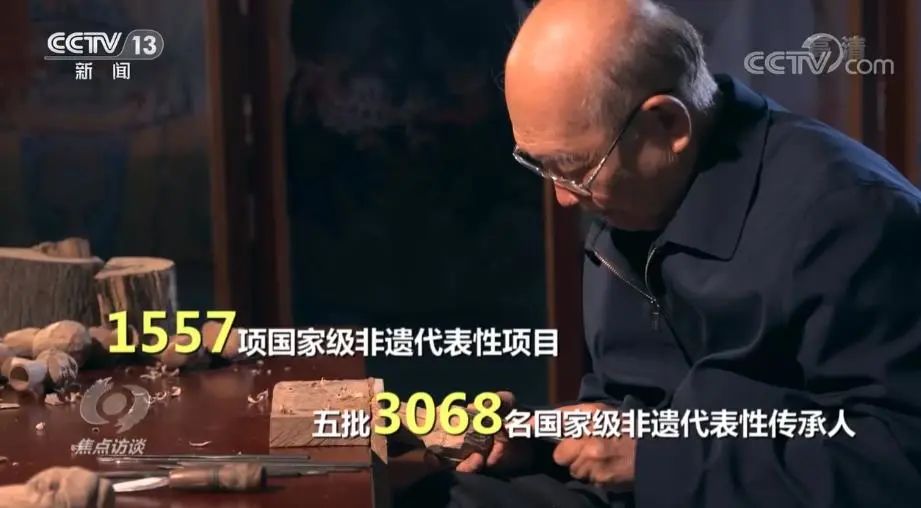
At present, China has announced 1557 national intangible cultural heritage representative projects and five batches of 3068 national intangible cultural heritage representative inheritors.
Since 2015, under the organization of the Ministry of Culture and Tourism, thousands of national representative inheritors of intangible cultural heritage have been recorded. The skills, stories and life insights of these national-level inheritors are permanently stored in the National Library's China Memory Project Center.
Tian Miao, deputy director of the China Memory Project Center of the National Library, said: "The core of the protection of intangible cultural heritage is people, and the inheritor is the most comprehensive, systematic and high-level carrier of cultural heritage in the contemporary era through the long historical inheritance process. The record and preservation of the cultural skills and cultural achievements of these representative inheritors can be said to be the protection of the common spiritual home of the Chinese nation, the preservation of the inner spiritual world of the Chinese nation, and the continuation of the Chinese nation The vitality and creativity of the national context. "
Intangible cultural heritage is an important part of China's excellent traditional culture. The Chinese civilization continues the spiritual blood of our country and nation. It needs not only to be passed down from generation to generation, but also to keep pace with the times and bring forth new ideas. We should "follow the rules of the ancients and open our own life" to promote the creative transformation and innovative development of the excellent traditional Chinese culture.
Vice President of China Federation of Literary and Art Circles Pan Lusheng, Chairman of the China Folk Literature and Art Association, said: "The General Secretary has put forward the important guiding ideology of creative transformation and innovative development, and has grasped the essence of cultural development. Intangible cultural heritage can only be better protected and inherited by finding the connection between traditional culture and modern life in the process of creative transformation and innovative development, glowing with greater brilliance, and cultivating more profound cultural self-confidence."
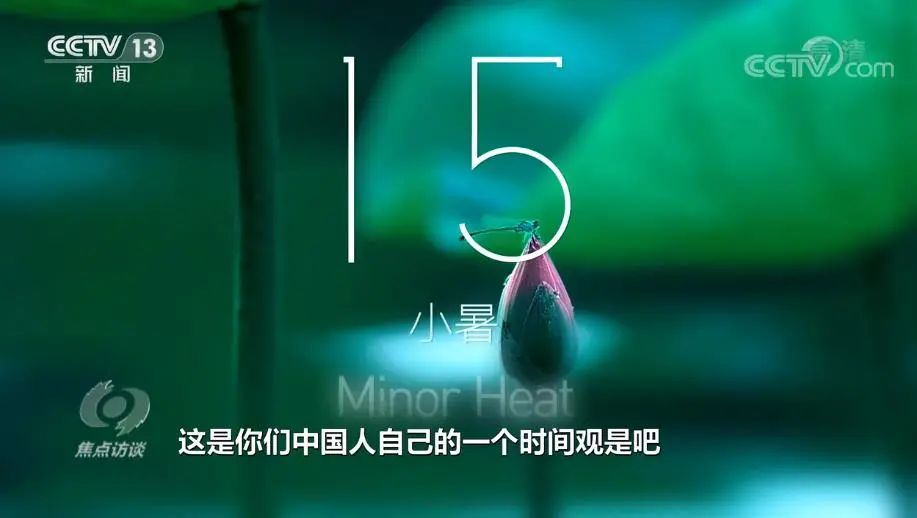
The Beijing Winter Olympics, which was just successfully held, left a deep impression on everyone. At the beginning of the opening ceremony, the director used the 24 solar terms to count down, which was unexpected and amazing at the beauty of Chinese culture. In 2016, the "24 Solar Terms" was included in the list of representative works of human intangible cultural heritage.
At the moment when the sacred fire was lit, the whole world was also moved by such a profound implication of the main torch and the light fire. The main torch of the big snowflake, which is made up of small snowflakes, hides the Chinese knot, the element of Chinese culture.
Wang Zhiou, director of visual effects at the opening ceremony of the Beijing Winter Olympics, said: "The Chinese knot not only has the meaning of unity and beauty, but also has a close sense of weaving, which is very similar to that of countries and regions around the world. So we use this concept to design iterations constantly. The Chinese knot and olive branch weave each other and tell a world story in Chinese language. I think this creative concept and process is our reflection and re-interpretation of Chinese culture."
Spread more value symbols bearing Chinese culture and spirit with innovative methods, which are everywhere in the opening and closing ceremonies of the Beijing Winter Olympics. The image of seal athletes carved by laser on the ice bricks, the door and window of China that athletes pass through, and the unfailing velvet flowers used when awarding the awards, all these elements convey the long history and profound Chinese culture.
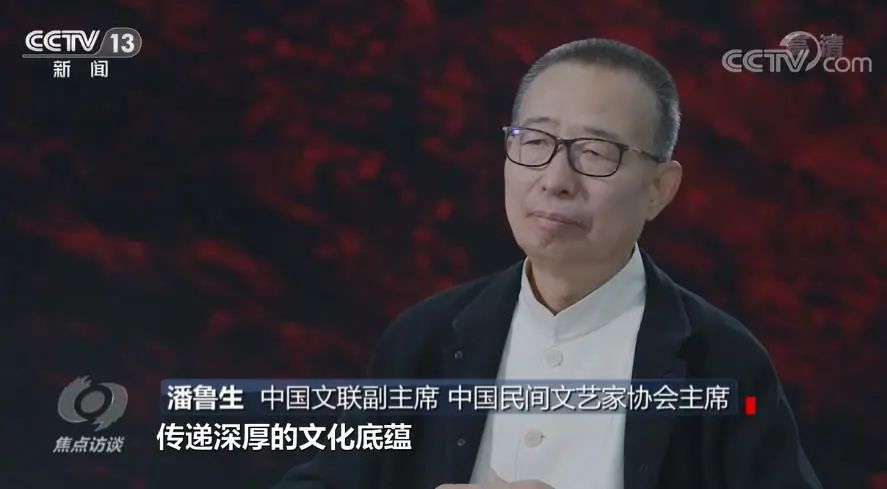
Pan Lusheng said, "As pointed out by the General Secretary, the Beijing Winter Olympics conveys profound cultural heritage through creative transformation and innovative development, presents a long cultural concept through the broadest and simplest way, shows the sincerity and friendship of the Chinese people through hospitality, and promotes mutual understanding and friendship among people around the world through civilized exchanges, which has rich spiritual connotations."
Chen Huawen, a professor at Zhejiang Normal University, said: "The presentation of so many intangible elements shows that our culture is very diverse and has been inherited and developed at some level. It also shows that our history is very long. It shows the world that our culture is not only a contribution to human beings, but also can be integrated and learned from each other, that is, it has shared content."
The excellent traditional culture of China is the precious wealth left by our predecessors, the continuation of the spiritual blood of the Chinese nation, and an extremely important part of the resources of China's excellent civilization. But we also see that the protection, inheritance and development of these intangible cultural heritage is not easy. It is not only necessary to sort out and record, but also to cultivate inheritors; It not only needs to inherit the essence, but also needs to keep pace with the times and innovate and develop. To make the intangible cultural heritage "live" and "fire", and make them glow with new brilliance in the new era, not only needs the relevant departments and inheritors to play a role, but also needs the joint efforts of all Chinese people.